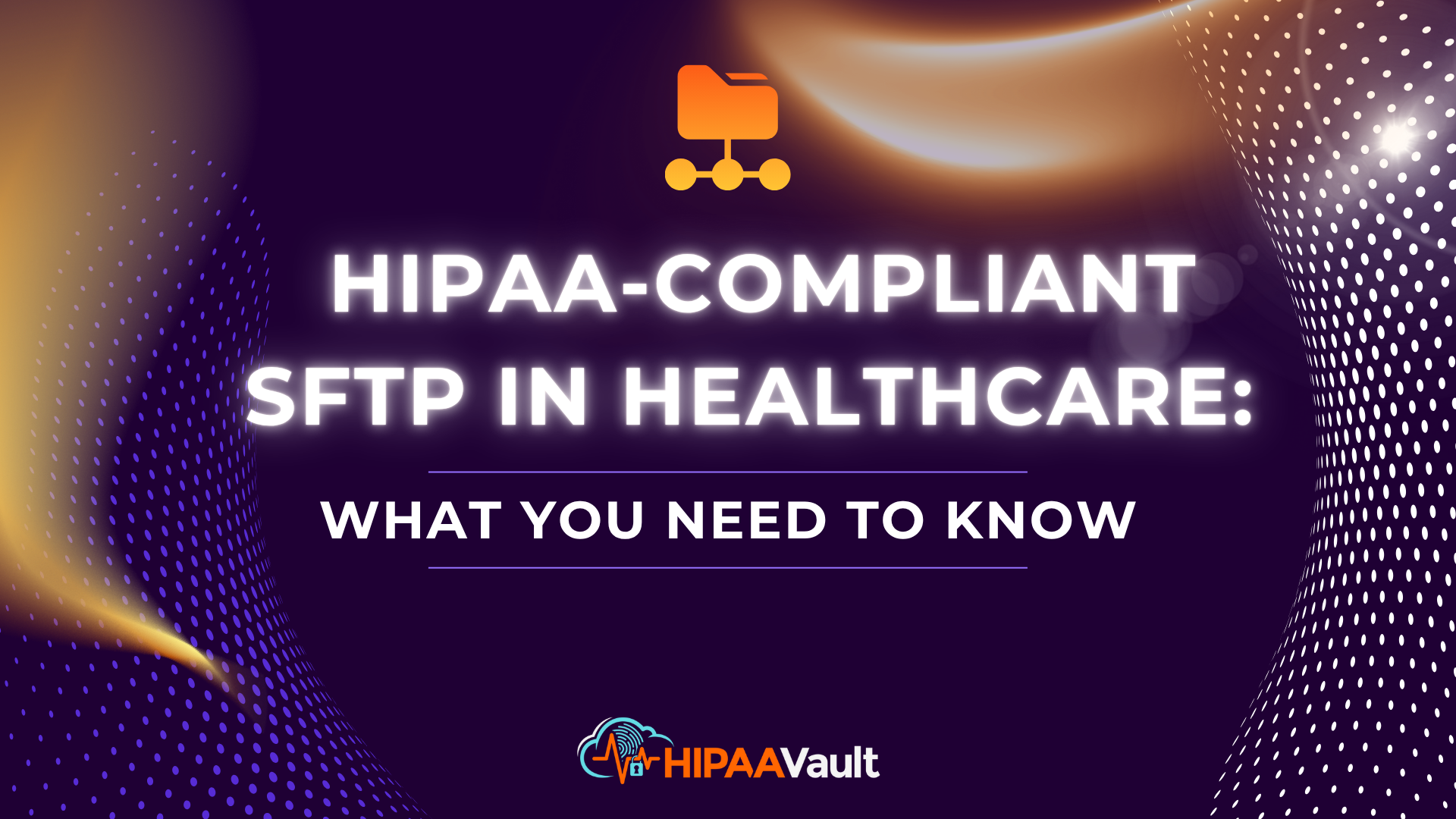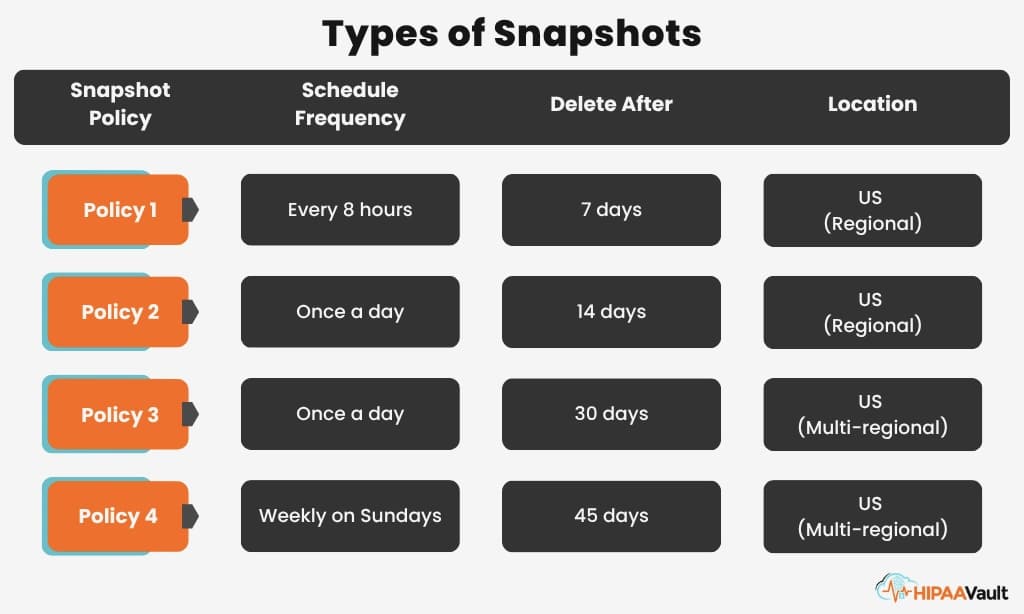In today’s digital healthcare environment, protecting the privacy and integrity of patient data is not optional – it’s a legal requirement under the Health Insurance Portability and Accountability Act (HIPAA). One critical tool that supports HIPAA compliance in data transfers is Secure File Transfer Protocol (SFTP). But what makes an SFTP solution HIPAA-compliant? And how do healthcare organizations ensure secure and legal data exchange?
This blog post, published by HIPAA Vault, breaks down the essentials of HIPAA-compliant SFTP in healthcare.
What is SFTP and Why It Matters in Healthcare
Secure File Transfer Protocol (SFTP) is a network protocol that enables secure transfer of files between systems over an encrypted connection. Unlike traditional FTP, which sends files and credentials in plaintext, SFTP operates over SSH (Secure Shell) to ensure data confidentiality and integrity.
In healthcare, SFTP is often used to:
- Transmit claims data to insurance providers
- Share diagnostic images and lab results
- Exchange PHI between Electronic Health Record (EHR) systems
- Automate backups of sensitive files
SFTP’s encrypted framework makes it a strong choice for HIPAA-regulated organizations needing to transmit protected health information (PHI) securely.
Is SFTP HIPAA-Compliant?
SFTP can support HIPAA compliance, but it is not inherently compliant on its own. HIPAA does not certify specific technologies; rather, it outlines security and privacy requirements that organizations must meet. To use SFTP in a HIPAA-compliant manner, it must be configured with appropriate administrative, technical, and physical safeguards as defined by the HIPAA Security Rule (45 CFR Part 164).
According to HHS, a compliant file transfer solution must address:
- Access controls
- Audit controls
- Integrity protections
- Transmission security
Key Features of a HIPAA-Compliant SFTP Server
1. Encrypted Transmission
All data transferred via SFTP is encrypted using SSH, preventing interception or tampering during transit. HIPAA requires transmission security to protect PHI from unauthorized access (45 CFR §164.312(e)(1)).
2. User Access Controls
A compliant SFTP server must enforce user authentication using strong credentials or SSH keys. Role-based access control (RBAC) helps ensure users can only access the files they are authorized to view or modify.
3. Audit Logging
SFTP activity – including login attempts, file transfers, and permission changes – must be logged and monitored. These logs support incident response and HIPAA audit requirements.
4. Secure Storage & Backup
Temporary or permanent storage on the SFTP server must be encrypted at rest. In addition, regular backups should be performed and stored securely to support disaster recovery protocols.
5. HIPAA-Compliant Hosting Environment
A compliant SFTP solution must be hosted in a HIPAA-compliant infrastructure. This includes:
- Physical and network safeguards
- Continuous monitoring
- Regular vulnerability assessments
- A signed Business Associate Agreement (BAA) with the hosting provider
Explore our managed hosting options at HIPAA-Compliant SFTP Server.
Use Case: Secure Medical Imaging Transfers
Imagine a radiology clinic that regularly shares diagnostic imaging (like MRIs or CT scans) with hospitals. These images are often large, contain PHI, and need to be accessed quickly by referring physicians.
By deploying a HIPAA-compliant SFTP server, the clinic can:
- Automate secure uploads of imaging files
- Authenticate hospital staff with SSH keys
- Encrypt data in transit and at rest
- Retain logs of all file transfers for compliance auditing
This configuration ensures regulatory compliance while supporting critical patient care workflows.
Choosing a HIPAA-Compliant SFTP Provider
When evaluating SFTP solutions, healthcare organizations should ask:
- Does the provider sign a Business Associate Agreement (BAA)?
- Is the environment hosted in a HIPAA-compliant data center?
- Are logs available for auditing and incident response?
- Is multi-factor authentication supported?
- Is encryption enforced both in transit and at rest?
HIPAA Vault offers fully managed SFTP solutions tailored to healthcare. We provide 24/7 support, built-in logging, automated backups, and a HIPAA-compliant infrastructure – all backed by a signed BAA.
Learn more at HIPAA Vault SFTP Hosting.
SFTP vs. Other File Transfer Methods
Alternatives to SFTP include HTTPS-based APIs and secure email gateways. While useful for certain scenarios, these options may lack SFTP’s automation capabilities and structured file handling.
SFTP remains a dependable choice for batch processing, recurring data exchange, and integrations with legacy systems. It’s widely supported, scriptable, and easy to manage in enterprise environments.
Despite speculation, SFTP is not being phased out in healthcare. In fact, it is still recommended for Electronic Data Interchange (EDI) transactions and other PHI-heavy transfers.
Conclusion: Ensure Compliance and Security with the Right SFTP Solution
HIPAA-compliant SFTP remains a critical tool for protecting patient data in transit. When implemented within a secure, compliant hosting environment and governed by a BAA, SFTP can fulfill the technical safeguards required under HIPAA.
Partnering with a trusted provider like HIPAA Vault gives you the confidence to transmit PHI securely and maintain compliance.
👉 Learn more about our fully managed HIPAA-compliant SFTP solution








